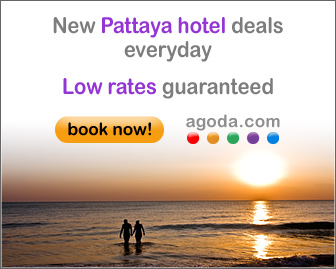Kruger National Park-Where to Stay and What to Do
The Kruger National Park was South-Africa’s first National Park and was established in 1926 by Paul Kruger. Covering somewhat 20 000 square kilometers of the lowveld, this park owes its pride to the unsurpassed variety of game, from the Big 5 (Lion, Leopard, Elephant, Rhino and Buffalo), to hippo’s cheetahs, hyenas and even the variety of bird life and the beauty of the South-African bushveld.
 The park boasts about its great variety of fauna and flora and includes 500 Bird species, 336 different Tree types, 106 Mammal Species, 114 Reptile Species, 40 types of Frogs, 34 species of Snakes, 5 different types of Iguana, 3 species of Tortoise and 49 Fish Species.
The park boasts about its great variety of fauna and flora and includes 500 Bird species, 336 different Tree types, 106 Mammal Species, 114 Reptile Species, 40 types of Frogs, 34 species of Snakes, 5 different types of Iguana, 3 species of Tortoise and 49 Fish Species.
Some of the Mammal species include: 1800 Lions, 8834 Elephants, 25000 Buffalo, 1871 White Rhino’s, 220 Black Rhinos, 250-300 Cheetahs, 600-900 Leopards, 2314 Hippos, 4600 Giraffes, 2000 Hyenas, 3150 Kudus, 350 Wild Dogs, 97297 Impalas, 496 Elands and 12723 Blue Wildebeest.
The park has eight public entrance gates, namely: Crocodile Bridge and Malelane gates which are the most southern entrances, Numbi, Paul Kruger, Orpen, Phalaborwa east of the park and finally Punda Maria and Pafuri gates in the Northern part of the Park.
The following methods of payment are generally excepted inside the park: South-African Rands, Traveller’s Cheques, Visa, Master Card, Diners Club and American Express and foreign currencies cab be exchanged at all rest camps.
There are petrol stations at all gates, except Paul Kruger and Malelane gates. All main camps do have petrol facilities.
The speed limit in the park is 50 kilometers per hour on main (tar) roads, and 40 kilometers per hour on gravel roads. There are also some picnic stops along the roads where you will be allowed to alight from your vehicle.
All camps have set opening and closing times and are limited to day traveling. Tourists should ensure that they travel only between these times. Gate Times are as follows:
Nov-Feb: Open 5:30 Close 18:30
Mar: Open 5:30 Close 18:30
Apr-Jul: Open 6:00 Close 17:30
Aug-Sep: Open 6:00 Close 18:00
Oct: Open 5:30 Close 18:00
Main Camps are all equipped with the following facilities:
Electricity, a First Aid Centre, a Shop, Braai and Communal Kitchen Facilities, a Laundromat, Restaurant or Self-Catering Area, Public Telephones. ATM’s are available at Skukuza and Letaba Camps. There is also a doctor at Skukuza Camp.
Holiday programs and evening films of wildlife are arranged in many of the rest camps. Please enquire at reception.
Bush Camps are much smaller and do not have all the facilities that main camps have. They generally do not cater for the use of any electrical appliances. Entrances to Bush Camps are also restricted to reserved overnight visitors. All units have a refrigerator, cooking utensils, crockery, cutlery and stove and private ablution facilities.
Luxury Bush Camps are also available with a 5 star rating.
There are some really exciting activities inside the Kruger National Park you may want to take part in at an extra cost. These may include Sunrise drives, Sunset drives, Day drives, Night drives, walking tours at different times of the day. Bookings can be made in advance or at the Rest Camps upon arrival. You are also able to book for traditional meals like Bush Braais (Barbeque) or even a traditional South-African Potjie. These are well worth a try.
To travel inside of the Kruger National park is quite safe but the following tips are important to ensure that you have a pleasant journey and stay.
Remember to take precautions against Malaria. It is recommended to begin the precautionary medicines before you arrive in the area. You must consult your General Practitioner for the prescription for the correct medicines. The highest risk time periods for Malaria is between October and May.
Early morning and late afternoon are the best times to spot animals.
Try not to exceed more than 200 kilometers per day, as you may miss a lot of game and struggle to reach your destination camp in time.
Do not alight from your car at any time where it is not permitted.
Drive within the speed limit. Many animals cross the roads unexpectedly.
Do not feed the animals.
It is great to be able to have your own safari in your own vehicle. The Kruger National Park gives each one of us that opportunity! May you have a great experience in one of the most special game reserves in Africa, the Kruger National Park!










